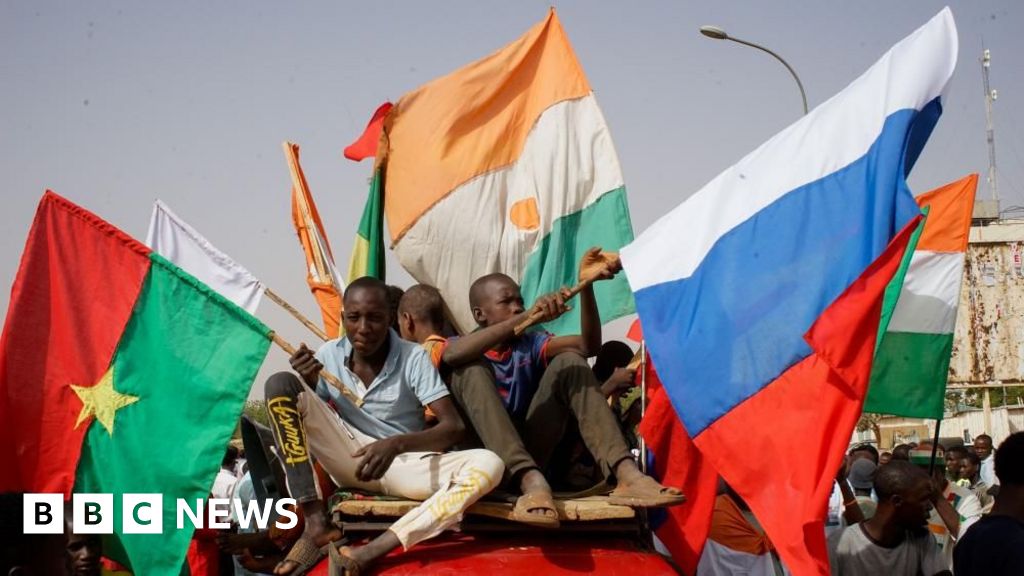Russia has dangled the possibility of building a nuclear power plant in uranium-rich Niger - a vast, arid state on the edge of the Sahara desert that has to import most of its electricity. It may be deemed impractical and may never happen, but the concept is yet another move by Moscow to seek a geopolitical advantage over Western nations.
Niger has historically exported the metal for further refining in France, but that is changing as the military-led country cuts off ties with the former colonial power. The uranium-mining operation operated by French nuclear group Orano was nationalized in June, which cleared the way for Russia to put itself forward as a new partner.
It is talking about power generation and medical applications, with a focus on training local expertise under a co-operation agreement signed between Russian-state corporation Rosatom and the Nigerien authorities. If ever brought to fruition this would be the first nuclear power project in West Africa.
Beyond initial discussions, it is unclear how far down this road things will progress. But already, with this first move, Moscow has shown that it grasps the depth of local frustrations.
For more than five decades, Orano - which until 2018 was known as Areva - mined Niger's uranium, to supply the nuclear power sector that is at the heart of France's energy strategy. Yet Paris did not share its nuclear energy knowhow with its loyal African supplier. Niger, meanwhile, has to rely largely on coal-fired generation and imports of electricity from Nigeria.
Now, the rupture in relations between Niger's junta and France has allowed Moscow to offer the hope, however distant, of a nuclear future - something that Areva/Orano, over so many years of local operation, had failed to do.
Despite the uncertainties and high costs, this move by Russia signals a significant geopolitical shift, tapping into local discontent and aspirations for a more self-sufficient energy future.
Niger has historically exported the metal for further refining in France, but that is changing as the military-led country cuts off ties with the former colonial power. The uranium-mining operation operated by French nuclear group Orano was nationalized in June, which cleared the way for Russia to put itself forward as a new partner.
It is talking about power generation and medical applications, with a focus on training local expertise under a co-operation agreement signed between Russian-state corporation Rosatom and the Nigerien authorities. If ever brought to fruition this would be the first nuclear power project in West Africa.
Beyond initial discussions, it is unclear how far down this road things will progress. But already, with this first move, Moscow has shown that it grasps the depth of local frustrations.
For more than five decades, Orano - which until 2018 was known as Areva - mined Niger's uranium, to supply the nuclear power sector that is at the heart of France's energy strategy. Yet Paris did not share its nuclear energy knowhow with its loyal African supplier. Niger, meanwhile, has to rely largely on coal-fired generation and imports of electricity from Nigeria.
Now, the rupture in relations between Niger's junta and France has allowed Moscow to offer the hope, however distant, of a nuclear future - something that Areva/Orano, over so many years of local operation, had failed to do.
Despite the uncertainties and high costs, this move by Russia signals a significant geopolitical shift, tapping into local discontent and aspirations for a more self-sufficient energy future.



















